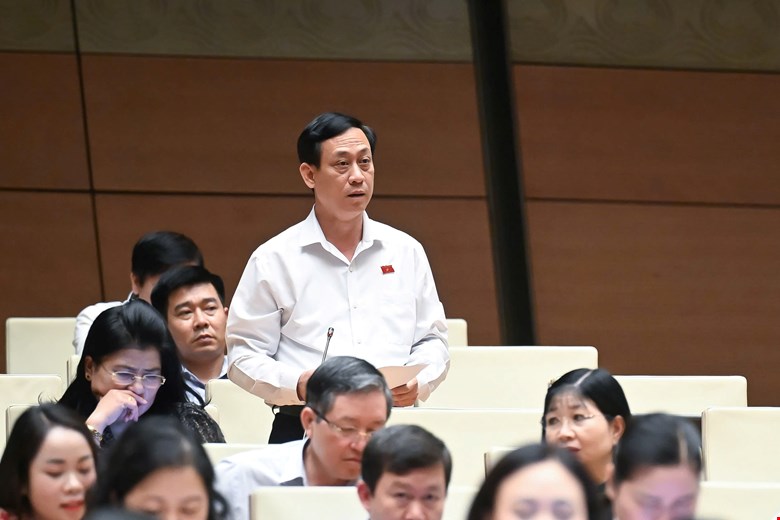Proposal to extend the roadmap for removing contract tax for business households
On the afternoon of June 17, discussing the socio-economic development plan, delegate Pham Trong Nghia (Lang Son delegation) said that out of nearly 5 million business households and individuals doing business in our country, there are currently more than 2.5 million business households with registered tax codes. The rest are mostly individuals doing business, accounting for nearly 50%.
According to the delegate, Resolution No. 68-NQ/TU dated May 4, 2025 of the Central Committee requires the elimination of contract tax for business households no later than 2026.
Meanwhile, Resolution No. 198/2015/QH15 dated May 17, 2025 of the National Assembly adds business individuals and stipulates: Business households and individuals do not apply the tax contract method from January 1, 2026.
With Decree 70/2025/ND-CP of the Government guiding the use of electronic invoices from 1.6.2025 for both business households and individual businesses.
The delegate suggested that the Government focus on directing communication and guiding implementation. If necessary, submit to the National Assembly for consideration and adjustment the scope of application, extend the roadmap for abolishing contract tax to ensure feasibility, compliance with Resolution No. 68-NQ/TU and ease the people's efforts, preventing high inflation.
Regarding the issue of protecting and developing human resources, the Lang Son delegation emphasized that people are the decisive factor for the autonomy and self-reliance of the economy.
Therefore, the delegate suggested that the Government soon issue a strategy or program of human resource development targets and a national vocational skills development program so that human resources are truly a strategic breakthrough for the coming period, synchronous with institutions and infrastructure.
"Early submit to the National Assembly to reduce normal working hours for private sector workers from 48 hours to 44 hours/week from 2026, towards 40 hours/week from 2030", said the delegate.
Strictly handle the behavior of fake drugs and fake foods
The delegate also mentioned many violations, especially fake drugs, fake foods, fraud, corruption, waste... on a large scale, which have occurred for a long time, as many National Assembly delegates mentioned, and have been eroding confidence.
Therefore, the delegate suggested handling it seriously, adding criminal responsibility and more importantly, suggested that the National Assembly, the Government, and the judiciary consider these issues not only from a legal perspective but from the perspective of trust and social moral values to have comprehensive, long-term, and effective solutions.

Delegate Mai Van Hai (Thanh Hoa Delegation) said that there are still some policy mechanisms and regulations that are slow to be amended and supplemented.
"Almost all work we do has problems, there are long-term problems but they are slow to be resolved," the delegate stated.
The delegate pointed out many difficulties in implementing public investment projects, disbursing public investment capital, difficulties in implementing investment procedures, especially land; difficulties in granting land use right certificates; difficulties in site clearance, compensation, support, and resettlement.
To contribute to solving this problem, the delegate suggested that it is necessary to focus on implementing and organizing the good implementation of Resolution No. 66 of the Politburo on innovating the work of law-making and enforcement to meet the requirements of national development in the new era.










